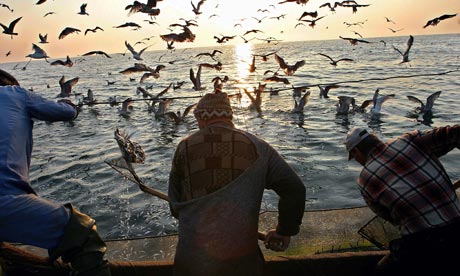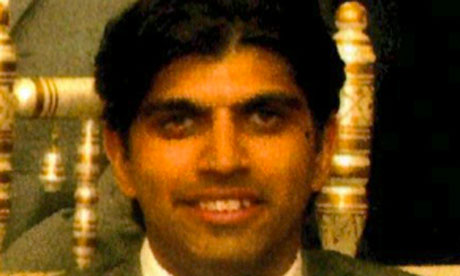To find one previously unknown work by one of art's undisputed geniuses may be considered good fortune. To discover 100 in one go might appear too good to be true. It should be no surprise then that last week's astonishing claims by Italian art sleuths to have found a cache of 96 paintings and sketches by the baroque giant Caravaggio in a workshop in Milan's Sforzesco Castle are facing increasing scrutiny and, in many circles, disbelief.
Art critics have expressed doubts that such a huge amount of work – almost doubling overnight the number of pictures attributed to the celebrated old master – could have gone unnoticed for so long.
And in response, authorities in Milan, no doubt miffed that art academics from the rival regional city of Brescia are claiming the glory for the discovery, are not sitting on their hands. Yesterday they announced two inquiries of their own into the veracity of the researchers' claimed methods and checks, and an independent assessment of the artworks' provenance.
Already the discovery is being tainted by serious claims and counter claims regarding dubious ethics and mysterious sorties at odd hours that could have come straight from the pages of the iconic painter's own colourful life.
The excitement began last Wednesday when a breathless Italian news agency reported the confident claims of art experts from the Brescia Museum Foundation that around 100 early works by Michelangelo Merisi, better known as Caravaggio, had been identified. An eye-watering price was soon put on them: €700m (£550m).
The cache was found, said the researchers, Maurizio Bernardelli Curuz Guerrieri and Adriana Conconi Fedrigolli, at the city's landmark castle in the old workshop of Caravaggio's master, the post-Renaissance painter Simone Peterzano. The researchers said their detailed comparison of the works with known pieces by the painter showed "the faces, bodies and scenes the young Caravaggio would use in later years".
"Caravaggio left the region of Lombardy with a rich collection of figures that he used throughout his career, but especially in his early years working in Rome. These works are proof," said Mr Bernardelli.
As The Independent reported at the time, Elena Conenna, the city council's somewhat-surprised culture spokeswoman, gave a cautious welcome to the "discovery". "We'll be very happy to discover it's true," she said. "But it's strange. They weren't in a hidden place, they were accessible to all." She said the city had not been informed about the discovery and would be "carrying out checks". Many people assumed the Brescia researchers had announced their discovery without warning to increase the impact.
Key to the Brescia pair's claims was numerous visits to the workshop during what they said was a painstaking two-year period of research into the paintings and sketches. Unfortunately, an email dated 11 May last year has now surfaced in which the pair appear to be requesting electronic copies of the works. Neither are there any official records of them having viewed the works in person, according to Francesca Rossi, the official in charge of access to the castle's art and antiquities. She told Corriere della Sera newspaper: "I've never seen them here. They've never had access to the collection, they studied the images exclusively from the computer disc."
Reports yesterday suggest the disc sent from Milan to Brescia contained over 1,700 jpeg images – at low resolution. And in a very Italian twist, authorities in Milan have also announced an internal inquiry to establish if unwarranted collusion and even corruption was involved.
Mr Bernardelli disputed the claims of the Milan officials. "We saw the collection various times, even if these were outside normal hours, accompanied by different people," he said.
Other art experts have taken issue with the pair's conclusions. One critic, Professor Philippe Daverio, said that identification of a Caravaggio's organic and ever-evolving work could not be made by looking for the presence of key "designs". "Design doesn't exist in the character of Caravaggio," he said. "And design wasn't needed in his painting. These sketches can't really be compared to anything."
Another critic, Francesca Cappelletti, who helped to establish that The Taking of Christ was painted by Caravaggio, was blunter: "To me, these pictures still seem like typical works of Peterzano." Another critic, Tomaso Montanari, said sarcastically the claim was akin to taking 100 drawings by Verrocchio (Leonardo da Vinci's master) and attributing them to the creator of the Mona Lisa.
It's perhaps not surprising that the latest controversy should centre on Caravaggio: fascination with the artist is at an all-time high. Some evidence even suggests that the artist, who added a revolutionary degree of grit and realism to the prevalent mannerist painting of his era, has even replaced Renaissance giant Michelangelo at the top of the unofficial Italian art charts.
Philip Sohm, of the University of Toronto, studied the number of publications devoted to both artists during the past 50 years, and found that since the mid-1980s the baroque painter has moved ahead of his Renaissance rival.
Interest has been increased by attempts in recent years to shed light on the mystery surrounding Caravaggio's death in 1610 at the age of 38. An investigation, involving DNA tests and comparisons with living relatives, led experts to conclude that the painter was probably buried in Porto Ercole, in Tuscany, after suffering an illness, thereby bringing centuries of speculation, including assassination theories, to an end.
Caravaggio was active in Rome, Naples, Malta and Sicily. But he often had to flee cities and leave works unfinished because of his tempestuous nature, which led him to kill at least one man. He eventually returned to Italy confident of obtaining a papal pardon, thanks to powerful connections in Rome.
Scepticism regarding the Milan paintings and sketches is in itself unlikely to harm sales of Mr Bernardelli Curuz's and Ms Adriana Fedrigolli's e-book, Young Caravaggio: One Hundred Rediscovered Works, dedicated to their claims and the pictures they are based on. But their publishing ambitions hit a snag this week with news that Amazon in Italy had withdrawn the book from sale, albeit without commenting on whether this was due to doubts over the quality of the research it contained.
Mr Curuz told Ansa: "The blocking of the Amazon system has damaged us because to understand the discovery it is essential to see the 1,000 images that we have collated."
The pair said they had no idea why it had been dropped, but added that it would be available on a website for self-published books. On his Facebook profile, Mr Curuz, was putting on a brave face. "We are calm and confident. The world will judge our work," he wrote.
But it is not only the world. It is also Milan's ever-busy prosecutors, who are looking into whether they should investigate the Brescia art historians for the illegal publication of private images.
Caravaggio: Life and legacy
Born Michelangelo Merisi, in Milan, on 29 September 1571.
Early life The family moved to nearby Caravaggio in 1576, from where the artist took his name. In 1592 he fled to Rome after a brawl.
Career Known for his rare naturalism and use of light and shade, a technique called chiaroscuro, that would influence later giants, including Rembrant. Despite lifelong fame – and notoriety – he sunk into obscurity after his mysterious death, only to be rehabilitated in the 20th century.
Expert view "He reclaimed the human form... there was art before him and art after him, and they were not the same." Robert Hughes, critic, in 1985.























